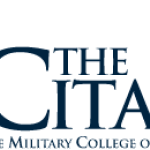- Industria: Education
- Number of terms: 941
- Number of blossaries: 0
- Company Profile:
A form of language use in which writers and speakers convey something other than the literal meaning of their words. Examples include hyperbole or exaggeration, litotes or understatement, simile and metaphor, which employ comparison, and synecdoche and metonymy, in which a part of a thing stands for the whole.
Industry:Literature
In the plot of a story or play, the action following the climax of the work that moves it towards its denouement or resolution.
Industry:Literature
A brief story with an explicit moral provided by the author. Fables typically include animals as characters. Their most famous practitioner in the west is the ancient Greek writer Aesop.
Industry:Literature
The first stage of a fictional or dramatic plot, in which necessary background information is provided.
Industry:Literature
The selection of words in a literary work. A work's diction forms one of its centrally important literary elements, as writers use words to convey action, reveal character, imply attitudes, identify themes, and suggest values. We can speak of the diction particular to a character, as in Iago's and Desdemona's very different ways of speaking in Othello. We can also refer to a poet's diction as represented over the body of his or her work, as in Donne's or Hughes's diction.
Industry:Literature
The conversation of characters in a literary work. In fiction, dialogue is typically enclosed within quotation marks. In plays, characters' speech is preceded by their names.
Industry:Literature
The dictionary meaning of a word. Writers typically play off a word's denotative meaning against its connotations, or suggested and implied associational implications.
Industry:Literature
The means by which writers present and reveal character. Although techniques of characterization are complex, writers typically reveal characters through their speech, dress, manner, and actions.
Industry:Literature
